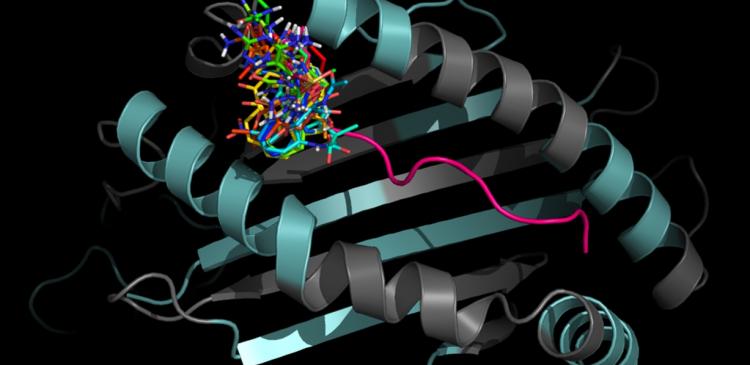Drug responses are known to vary based on the genetic profiles of patients. This is why personalized medicine is highly desirable to prevent adverse effects.
Drug-induced hypersensitivity reactions (DIHRs) are serious and life threatening. A common example is the use of the antiepileptic drug carbamazepine, but the mechanisms that trigger it are unclear. Current scientific consensus holds that people who have a specific variation of the ‘human leukocyte antigen B’ (HLA-B) gene, which provides the code for making a protein that plays a critical role in the immune system, are more at risk of DIHR. However, the mechanism linking this gene to DIHR is currently unknown. As this specific variation, called HLA-B*15:02, is fairly common in people of South-East Asian descent, this is a serious problem for clinicians in the region.
Researchers at Universiti Teknologi MARA Selangor in Malaysia used computer modelling to mimic and analyse how the protein encoded by HLA-B*15:02 interacts with a range of antiepileptic medications. The researchers used various software to mimic how drugs interact with a specific region of the HLA protein that is crucial for its normal functionality. Since the HLA complex acts like a sort of identity card in our cells, anything interacting with it other than our own immune cells can cause problems.
Carbamazepine and another eight out of 26 antiepileptic drugs (AEDs) that were tested were found to bind strongly to the HLA complex in the simulation model. The team believes this strong binding is behind DIHRs in patients who carry the variant gene.
The remaining AEDs that did not show strong binding interactions with the HLA-B*15:02 complex, including clonazepam, nitrazepam and stiripentol, could be safer options for patients that have already developed adverse reactions to other antiepileptic drugs.
Testing for HLA-B*15:02, which can be done in as few as four hours, should be incorporated into clinical practice as soon as possible, recommends the study’s lead researcher Mohd Zaki Salleh.
------------------------------------------------
Did you know?
Drug responses are known to vary based on the genetic profiles of patients. This is why personalized medicine is highly desirable to prevent adverse effects. Researchers are working on developing diagnostic tools to determine more effective and safer medications and doses that are tailored based on the variations in patients’ genes.
------------------------------------------------
Further information
Professor Mohd Zaki Salleh | E-mail: [email protected]
Integrative Pharmacogenomics Institute (iPROMISE)
Universiti Teknologi MARA
Professor Lay Kek Teh | E-mail: [email protected]
Integrative Pharmacogenomics Institute (iPROMISE)
Universiti Teknologi MARA




